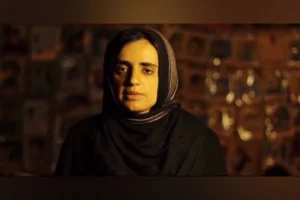The students’ union at Karachi University is now in its seventh consecutive day of protests, highlighting several issues impacting students, such as increased fees, and has partially boycotted classes.
The protest, which began at the Administrative Block, has garnered support from various departments and student organisations. As a result, the university’s administrative offices, canteen, and certain departments are partially closed, and bus operations have been suspended.
According to a report from the Express Tribune, the students are calling for a 50 per cent cut in late fees, the immediate removal of examination fees, the abolition of the Pakistani Rupees (PKR) 5,000 re-admission fee, and prompt repairs to deteriorating buses, along with improvements to classroom conditions.
They have pledged to persist with their protests until their demands are met, highlighting ongoing concerns about high fees, inadequate facilities, and transportation issues.
Previously, protesters claimed that Vice Chancellor, Khalid Mahmood Iraqi had halted the operation of transport points, compelling students to seek alternative ways to get home. Student leaders officially submitted their list of demands to the Vice Chancellor. After discussions, the students’ organisation announced that Iraqi had agreed to partially fulfill their requests.
The protest, which started on Monday, was organised by the Islami Jamiat-e-Talaba and the Students’ Alliance of Karachi University. The students held banners criticising the poor condition of classrooms and the significant fee increases, The Express Tribune reported.
They also demanded the abolition of the PKR 5,000 re-admission fee. Furthermore, the students called for urgent repairs to the ageing university buses and enhancements to classroom conditions. The protesters stated that they would continue their demonstrations until their demands were fulfilled, pledging to intensify their actions if necessary.
The condition of college education fees in Pakistan has become a significant issue. The Pakistani government has faced criticism for not providing adequate financial assistance or scholarships to help students cope with the rising costs of education.



















